COVID-19 Holistic Health Research Updates
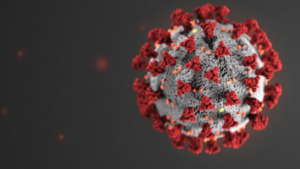
Staying tuned in to your health is always important, but it should continue to be an even higher priority amid this pandemic. For most of us, the pandemic has forced us to stay close to home during a time we would otherwise be traveling and going on summer adventures. Because of this, I find myself compelled to shine a light on all the good science in support of healthy lifestyle practices as we go through these challenging times. In this blog, I’m sharing insights and updates in several areas from indoor air quality to proton pump inhibitors and of course nutrition, all as it relates to COVID-19 (the disease) and SARS-CoV-2 (the virus).
Safety and Health Benefits of Being in Nature
We can all benefit from spending more time in nature to improve our health. The Journal of Health Psychology confirms what Franciscans and mystics have long known: interacting with nature is a great stress reliever. Gardening, in particular, has been found to improve mood and decrease stress, which can be measured by reduced cortisol levels.[1]
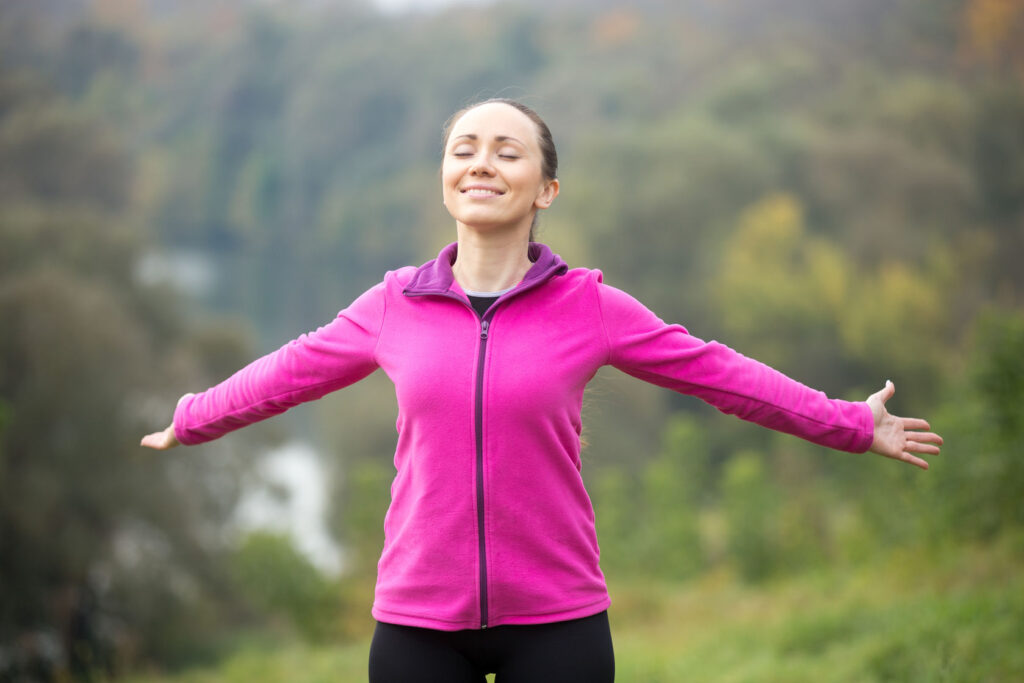
A written survey instrument developed in 2001 found that interacting with nature in a nurturing environment provides a number of important benefits, including mental well-being. Gardening was chosen most frequently as the most enjoyable activity. Researchers noted that gardening stimulated reflection, and helped the participants to gain insight.[2]
Concern about the health impacts of novel coronavirus SARS-CoV-2 has resulted in widespread enforced reduction in people’s movement (‘lockdowns’). However, there are increasing concerns about the severe economic and wider societal consequences of these measures. In a recent published review paper, SARS-CoV-2 clusters were linked to a wide range of mostly indoor settings. Few reports came from schools, many from households, and an increasing number were reported in hospitals and elderly care settings across Europe. Being outdoors is the safest place to be.[3]
Spending time in nature can lower blood pressure and stress hormone levels, reduce nervous system arousal, enhance immune system health, increase self-esteem, reduce anxiety, improve sleep, and elevate mood. Natural environments have also been found to speed the rate of healing and lessen aggression in people that have Attention Deficit Disorder. In a recent study, psychiatric unit researchers found that being in nature reduced feelings of isolation, promoted calm, and lifted moods among patients.[4]
Saint Francis, faithful to Scripture, invites us to see nature as a magnificent book in which God speaks to us and grants us a glimpse of his infinite beauty and goodness. ~Pope Francis
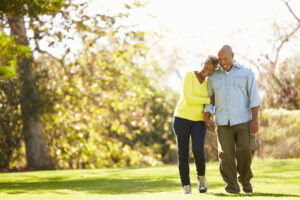
Being outdoors in the sunlight also provides us with sufficient levels of vitamin D. A recent study published in The Lancet showed that vitamin D sufficiency reduced risk for morbidity and mortality in COVID-19 patients.[5] According to the researchers, “the significant reduction in serum C-reactive protein, an inflammatory marker, along with increased lymphocytes percentage, suggests that vitamin D sufficiency also may help modulate the immune response by reducing risk for a cytokine storm in response to this viral infection.” A cytokine storm is a severe immune reaction in which the body releases too many cytokines into the blood too quickly. Cytokines play an important role in normal immune responses but having a large amount of them released in the body all at once can be harmful.
Updates on Masks and Concerns about Indoor Air Quality
In previous posts, I’ve recommended gathering outdoors, not indoors, for social gatherings. Although experts recommend maintaining six feet of distance in any situation, what we should be concentrating on is actually on how unhealthy it is to be indoors with little to no ventilation and badly filtered air-conditioned air. Any indoor air cannot possibly be compared to being outdoors in fresh air.
“Studies in laboratory conditions now show the virus stays alive in aerosol form with a half-life on the scale of hours. It persists in the air,” said William Ristenpart, PhD, a professor of chemical engineering at UC Davis. “That’s why you want to be outdoors for any social situations if possible.”[6]
Though mask wearing has been shown to decrease the likelihood of getting COVID-19, even N95 surgical masks are not airtight enough to create an effective barrier against the much smaller aerosol particles, which are about 1/100th the size of a human hair. These particles dissipate and linger in the indoor air for hours.[7] Wearing a mask is still a better choice than not wearing one.
The role of respiratory viruses in the pathogenesis of severe respiratory infections is an issue of great importance, particularly now. In a review of the scientific literature regarding the association of outdoor air pollution and respiratory viruses on respiratory diseases, evidence supports a clear association between air concentrations of pollutants and human respiratory viruses interacting to adversely affect the respiratory system. In this review, researchers paid special attention to the association between air pollutants and the transmission and severity of the effects caused by SARS-CoV-2 (the virus), which causes COVID-19 (the disease). Although studies on this issue are still scarce, most results indicate that chronic exposure to air pollutants complicates the recovery of patients of COVID-19 and leads to more severe and lethal forms of this disease. This deserves immediate and in-depth experimental investigations.[8]
Poor household indoor air quality is a long-standing public health issue with even greater relevance now that many individuals are spending more time at home. Each year, 3.8 million people worldwide prematurely die from illnesses attributable to indoor air.[9]

At present, the Environmental Protection Agency does not regulate indoor air, and state-level legislation has resulted in a patchwork of national coverage. What we do know is that staying indoors exposes you to increased levels of indoor pollutants, which puts you at greater risk for developing COVID-19 as well as recovering from the disease.
Proton Pump Inhibitors Appear to Increase COVID-19 Risk
In March 2019, I wrote a blog on the dangers of proton pumps (PPIs). Now, there are even more reasons to avoid this highly addictive and potentially dangerous class of drugs. Studies show that taking PPIs daily is associated with increased odds of testing positive for COVID-19. Compared with non-users, people taking PPIs once a day had an odds ratio for positivity of 2.15 (95% CI 1.90-2.44) and in twice-daily users the OR rose to 3.67 (95% CI 2.93-4.60). Researchers speculate that the risk is likely related to PPI-induced hypochlorhydria, noting that the stomach acid suppressors have also been linked to an increased risk of viral gastroenteritis during seasonal outbreaks.[10]
BCG Vaccine May Offer Protection from Severe COVID-19
The bacillus Calmette−Guérin (BCG) vaccine against tuberculosis confers broad protection against other infectious diseases, and it could reduce the severity of COVID-19. For more than a century, the BCG vaccine has been used worldwide and is associated with reduced mortality rates in infants and children. Studies show a strong correlation between BCG vaccination use and lowered Covid-19 mortality rates in socially similar European countries. A report published by the Proceedings of the National Academy of Sciences showed that every 10% increase in the BCG index (indicating the degree of universal BCG vaccination) was associated with a 10.4% reduction in COVID-19 mortality.[11]
BCG is a form of immunotherapy that has also been used to treat the most common form of bladder cancer transitional cell carcinoma. The mechanism of action of BCG is very complex. In a nutshell, it is likely that BCG antitumor immunotherapy is the result of the immune response initially aimed at clearing the foreign pathogen instilled in the bladder. The end result is an activated immune response needed to combat the attenuated mycobacteria that targets tumor cells.[12] Strong evidence suggests that the vaccine provides nonspecific immunity—protection beyond tuberculosis. Countries with prior BCG vaccination have protection from both incidence and mortality.
One positive factor to keep in mind with the huge uptake in positive cases of COVID-19 is that it brings us closer to herd immunity, which is a possible way of containing the spread of the virus. If enough people get COVID-19 and form antibodies, they become resistant and the virus has nowhere to go. That[MP1] number is most likely between 60 and 70% of the population. This is what stopped the Zika virus outbreak in Brazil. Two years after the outbreak began, 63% of the population had had exposure to the virus and it vanished.[13]
Common Cold Infections May Provide Immunity to COVID-19
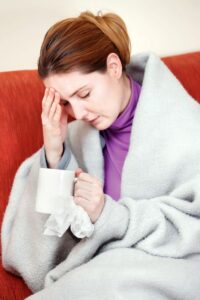
The current pandemic and the common cold are both caused by coronaviruses. In a recent study, researchers in Germany reported that people who have been previously infected with versions of the coronavirus that cause the common cold also have some immunity to the COVID-19 virus. If these reports stand up to further scrutiny, it would be very good news because they suggest that the pandemic could be over sooner and ultimately be less lethal than feared.”[14]
Zinc Shows Promise in COVID-19 Treatments
In a recent blog post, I discussed the importance of optimizing zinc intake for strengthening immune function. Recent research shows that zinc may also play a supportive role in treatments for COVID-19. The antimalarial drug chloroquine (CQ) and its metabolite hydroxychloroquine (HCQ) are currently being tested in clinical studies as potential candidates to limit SARS-CoV-2-mediated morbidity and mortality. Research indicates that these treatments can be enhanced by zinc supplementation. [15]
Because zinc deficiency frequently occurs in elderly patients (even those who are otherwise healthy) and in those with cardiovascular disease, chronic pulmonary disease, or diabetes, the researchers hypothesized that CQ/HCQ plus zinc supplementation may be more effective in reducing COVID-19 morbidity and mortality than CQ or HCQ in monotherapy.[16]
I’ll continue to keep you updated on the latest health-related research on COVID-19. Meanwhile, cultivate a positive attitude, eat well, get enough sleep and exercise, stay connected with family and friends, and don’t be afraid to spend time outdoors in the fresh air and sunshine.
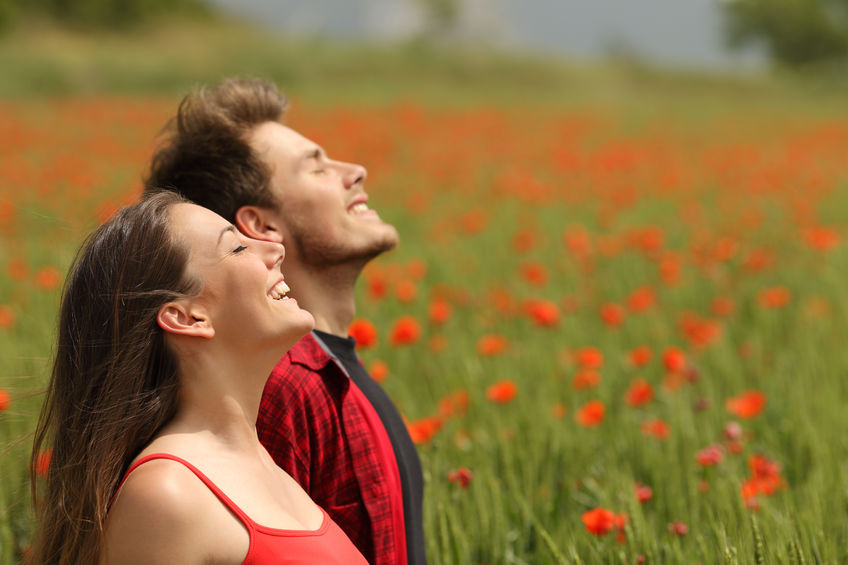
[1] Van Den Berg, A. E., & Custers, M. H. G. (2011). Gardening Promotes Neuroendocrine and Affective Restoration from Stress. Journal of Health Psychology, 16(1), 3–11. https://doi.org/10.1177/1359105310365577
[2] Catanzaro, C. and Ekanem, E. (2004). HOME
GARDENERS VALUE STRESS REDUCTION AND INTERACTION WITH NATURE. Acta Hortic. 639,
269-275 DOI:
10.17660/ActaHortic.2004.639.35
https://doi.org/10.17660/ActaHortic.2004.639.35
[3] Leclerc QJ, Fuller NM, Knight LE; CMMID COVID-19 Working Group, Funk S, Knight GM. What settings have been linked to SARS-CoV-2 transmission clusters?. Wellcome Open Res. 2020;5:83. Published 2020 Jun 5. doi:10.12688/wellcomeopenres.15889.2
[4] Pieters HC, Ayala L, Schneider A, Wicks N, Levine-Dickman A, Clinton S. Gardening on a psychiatric inpatient unit: Cultivating recovery. Arch Psychiatr Nurs. 2019;33(1):57-64. doi:10.1016/j.apnu.2018.10.001
[5] Maghbooli, Zhila and Ebrahimi, Mehdi and Shirvani, Arash and Nasiri, Mehrad and Pazoki, Marzieh and Kafan, Samira and Tabriz, Hedieh Moradi and Hadadi, Azar and Montazeri, Mahnaz and Sahraian, Mohammad Ali and Holick, Michael F., Vitamin D Sufficiency Reduced Risk for Morbidity and Mortality in COVID-19 Patients (5/27/2020).: https://ssrn.com/abstract=3616008 or http://dx.doi.org/10.2139/ssrn.3616008
[6] Ellis, Ralph, Face Masks Reduce COVID Infection Risk by 65%WebMD Health News Brief Reviewed by Michael W. Smith, MD on July 10, 2020, https://www.webmd.com/lung/news/20200710/face-masks-reduce-covid-risk-by-65-percent?ecd=wnl_spr_071120&ctr=wnl-spr-071120_nsl-Bodymodule_Position1&mb=6kH56bTQcUw7CkdzPX0CTOHnVev1imbCuriLcFC0itE%3d
[7] Ellis, Ralph, Face Masks Reduce COVID Infection Risk by 65%WebMD Health News Brief Reviewed by Michael W. Smith, MD on July 10, 2020, https://www.webmd.com/lung/news/20200710/face-masks-reduce-covid-risk-by-65-percent?ecd=wnl_spr_071120&ctr=wnl-spr-071120_nsl-Bodymodule_Position1&mb=6kH56bTQcUw7CkdzPX0CTOHnVev1imbCuriLcFC0itE%3d
[8] Domingo JL, Rovira J. Effects of air pollutants on the transmission and severity of respiratory viral infections. Environ Res. 2020;187:109650. doi:10.1016/j.envres.2020.109650
[9] Nwanaji-Enwerem JC, Allen JG, Beamer PI. Another invisible enemy indoors: COVID-19, human health, the home, and United States indoor air policy [published online ahead of print, 2020 Jul 8]. J Expo Sci Environ Epidemiol. 2020;10.1038/s41370-020-0247-x. doi:10.1038/s41370-020-0247-x
[10] Almario CV, et al “Increased risk of COVID-19 among users of proton pump inhibitors” Am J Gastroenterol 2020.
[11] Luis E. Escobar, Alvaro Molina-Cruz, Carolina Barillas-Mury, BCG vaccine protection from severe coronavirus disease 2019 (COVID-19), Proceedings of the National Academy of Sciences Jul 2020, 202008410; DOI: 10.1073/pnas.2008410117
[12] Alhunaidi O, Zlotta AR. The use of intravesical BCG in urothelial carcinoma of the bladder. Ecancermedicalscience. 2019;13:905. Published 2019 Feb 26. doi:10.3332/ecancer.2019.905
[13] WebMD, What Is Herd Immunity? 7/13/2020, https://www.webmd.com/lung/what-is-herd-immunity?ecd=wnl_spr_071220&ctr=wnl-spr-071220_nsl-LeadModule_cta&mb=6kH56bTQcUw7CkdzPX0CTOHnVev1imbCuriLcFC0itE%3d#1
[14] Nelde, Snniks, et. al., SARS-CoV-2 T-cell epitopes dene heterologous and COVID-19-induced T-cell recognition, https://www.researchsquare.com/article/rs-35331/v1 , https://www.immunology.ox.ac.uk/covid-19/covid-19-immunology-literature-reviews/sars-cov-2-t-cell-epitopes-define-heterologous-and-covid-19-induced-t-cell-recognition, retrieved July 19 2020
[15] Lam C, Mataraso S, Lynn-Palevsky A, Green-Saxena A, Barnes G, Hoffman J, Calvert J, Pellegrini E, Das R. Identi cation of a COVID-19 Subpopulation Responsive to Hydroxychloroquine Using Machine Learning: The IDENTIFY Trial [abstract]. Res Pract Thromb Haemost. 2020; 4 (Suppl 1). https://abstracts.isth.org/abstract/identi cation-of-a-covid-19-subpopulation-responsive-tohydroxychloroquine-using-machine-learning-the-identify-trial/. Accessed July 17, 2020.
[16] Derwand R, Scholz M. Does zinc supplementation enhance the clinical efficacy of chloroquine/hydroxychloroquine to win today’s battle against COVID-19? [published online ahead of print, 2020 May 6]. Med Hypotheses. 2020;142:109815. doi:10.1016/j.mehy.2020.109815

Excellent article. Very informative.
Thank you Donnie, much appreciated.
Very well presented! Thank you!
This is a crucial and timely article. Thank you for your service, Donnie.